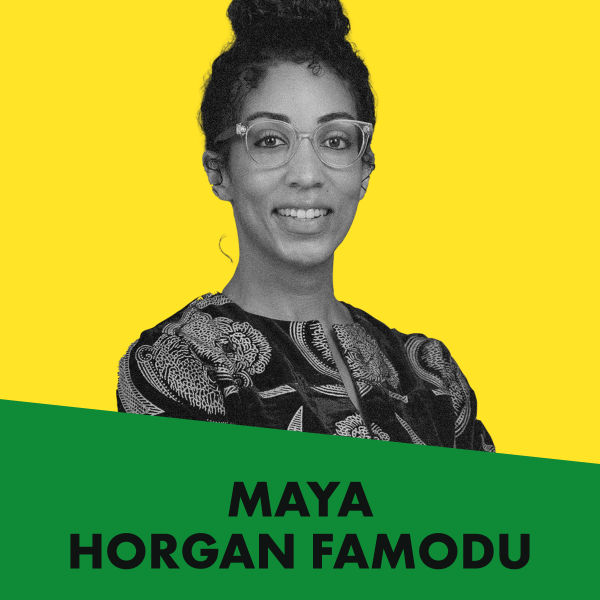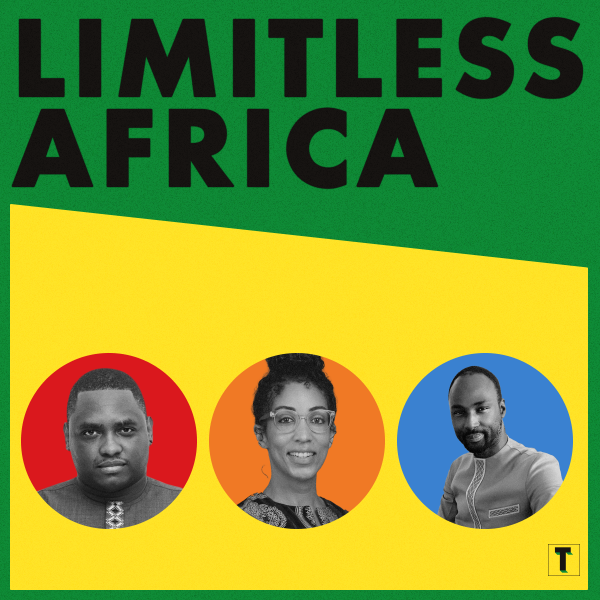How do you stop the brain drain?
With guests Gabriel Curtis, Lydiah Bosire, Pearl Pillay

Episode notes
About 70,000 skilled professionals emigrate from Africa every year.
Transcript
How do you stop the brain drain?
About 70,000 scientists, doctors, economists and other skilled professionals emigrate from Africa every year. This is what’s called the brain drain.
They live abroad, not in Africa.
Should we convince them to stay at home? And how?
Gabriel Curtis a former politician in the Guinean government. Guinea...
How do you stop the brain drain?
About 70,000 scientists, doctors, economists and other skilled professionals emigrate from Africa every year. This is what’s called the brain drain.
They live abroad, not in Africa.
Should we convince them to stay at home? And how?
Gabriel Curtis a former politician in the Guinean government. Guinea has one of the highest rates of emigration.
Pearl Pillay a youth leader from South Africa who thinks we need to give young people something to stay for.
Lydiah Bosire is an academic. She founded a company to help high achieving young Africans study abroad.
Did you enjoy the episode? Please let us know what you think here.
Please listen to a previous episode: How can we raise more African unicorns?
Transcript: How do you stop the brain drain?
Claude:
The African Union estimates that about 70,000 skilled professionals emigrate from Africa every year. This is what’s called the brain drain.
It means that many of the best African scientists, doctors, economists and other skilled professionals live abroad rather than in Africa. I’m one of them.
So is the brain drain actually a problem and how can we stop it? Get ready for some conflicting opinions.
My first contributor is Gabriel Curtis, the former minister of private-public partnerships in the Guinean government before the September coup last year. He used to live in the US but returned to live in Guinea. Here’s our conversation.
So Gabriel, how do you start the brain drain?
Gabriel:
First of all, we need to have good governance to have to provide environment that are more conducive to creating employment and entrepreneurship. Secondly, you also need to have brain gain. So attracting people that are outside the continent to come back and invest here, to come back and settle here, to come back and train people here so that they can also benefit. So it’s a two-prong solution. But I think to stop brain drain, it starts first on the continent on the terrain, and it starts with good governance.
Claude:
Absolutely. But then there’s two approaches and then I’m asking you what’s the better question? How do you stop people from leaving? Or how do you convince people to come back?
Gabriel:
To stop people from leaving, they have to understand that the future is here. The solutions are, you know, Africa needs its youth. It needs its creativity, it needs its sons and daughters to work for Africa, because only Africans can solve African problems. I think the people from the diaspora can also play a role because they can pass on also some of them some messages and saying, you know, we are on the other side, but from from our vantage point, we think that the future is in Africa, and they can also help those that are here view the situation because sometimes the grass looks greener on the other side. Until you reach there, and you see that it’s not.
So it is very important in terms of communication, in terms of giving people opportunities, and then also explaining to them that the future and opportunities are much wider and are much more within reach on the continent than outside the continent.
For the ‘Brain Gain’. one of the issues that governments face and African countries face is the standard of living that they have elsewhere. Sometimes they do not get the same when they come back to the continent salaries and some of the living conditions are not on par.
But that being said, I think the impact that you have when you come back on the continent the opportunities that you can see, that you can seize, and also the sense of fulfilment that you get can make up for some of the convenience that you have living outside the continent. And I can attest that when you come back, you do really make a difference.
Claude:
Well, that’s a great segue into the final question I wanted to ask you about the brain drain. Why did you decide to come back to Guinea?
Gabriel:
Family, because I have my family here and then before I decided to come back, I was fortunate enough that my grandparents were still alive. My grandfather died – he was 101 years old. So I spent the last three / four years of his life with him and that’s something that you cannot put a price tag on.
The second thing is that I felt that I’ve gained enough experience where I was that I could valuably contribute to the development of the country, because I do believe that the future is on the African continent.
Claude:
My second contributor is Pearl Pillay, from Johannesburg, South Africa. She heads up a think tank that works to encourage youth participation in politics and civil society. Here’s our conversation.
Many Africans are participants in what we call the movement of the brain drain. That could be perceived as a problem for Africa and its aspirations for democracy, for economic growth, social cohesion, and so on. The question is how do you stop young people wanting to go abroad? How do you actually get to stop the brain drain?
Pearl:
I think there are a few ways to answer the question. The one is I think we do not live in countries where young people are actually valued. Right. And where young people are given real opportunities for growth. And I think that’s part of a fundamental shift in values that we need to have as people who lead countries and lead in certain government areas. Right? To be able to say, how do we revalue the way in which we see young people and their ability to contribute?
I think in a lot of contexts on the continent, young people are seen as a really great voting bloc, what I like to call ‘political cattle’. But when it comes to thinking about growing the economy, providing opportunities, and people who should form the backbone of a country’s development, young people are often ignored. I think we also need to have a conversation about what we think young people have to offer. I think especially in economies that are struggling, and South Africa is a really good example of that. We often try and push young people into careers that we think our economy needs instead of thinking about how do we take what young people want to do with their lives and put that into the economies that we’re trying to develop. Right? And so I think prioritizing youth ambitions and youth goals and being able to build and structure a society around that, rather than forcing young people to kind of assimilate into a pre-imagined idea of what economic development looks like is part of keeping people at home.
Claude:
I’m thinking of a very specific example, which is my example. So when I was 21 years old and graduating college in London, I was faced with a choice, right? Either to go back to Togo, which at that time was a military dictatorship, or staying in London and trying to build a career there. So do you think it’s fair to ask young people to stay on the continent given the lack of opportunities, given also what I would just call the failed leadership that has led to this lack of opportunities for young people?
Pearl:
No, it’s incredibly unfair. I think we place so much pressure on young people. right? As you’ve got to be the people who build your countries and the big narrative in South Africa, especially from our leaders, which I think is the most ironic thing. You know, things are so bad, but you guys are the ones that are going to be able to fix it. And when young people say, okay, dude, but you’re the ones who broke it, right. And now you’re saying we need to be the ones who stick in and make things better. But you’re also not giving us the opportunity to do so.
I also think that over and above being citizens and having the civic duty that comes with being a citizen of the country, we’re also just human beings, right, and we’re all living in the pursuit of a better life. And sometimes that means having to leave. And so I think it is incredibly unfair to say, you know, young people are leaving and they don’t want to stay at home and build their countries, which is often the narrative that you get when you’re not actually presenting them with an alternative. And I think that was part of what I was saying earlier about reimagining how we value young people because ultimately if we’re all accepting that we’re human first, before we’re citizens, before we are activists or public servants or whatever hats we wear, the things that are in the best interests of our own well being, should be the things we prioritize first and I don’t think there’s anything wrong with that.
So I do think it’s incredibly unfair to try and keep young people here without giving them anything to stay here for.
Claude:
My third contributor is Lydiah Bosire, from Kenya, though she lives in Ithaca New York. She founded a company which funds African students to come study in the US. She doesn’t like the term brain drain; she prefers the idea of “brain circulation” Here’s our discussion.
Do you think that the brain drain is a helpful term?
Lydiah:
Absolutely not
[Claude laughs]
With brain drain, you’re really saying three things in one message. The first thing they’re saying is there is a scarcity of African talent.
So you, Claude, you, Lydia, who is in the US ought to be back home because there are so few of you out there. And yet, we know those of us who know the continent that we have the fastest growing population in the world.
Now, the only reason why there would be both a lot of young people and very few people like you and me is if we are assuming that brilliance is not evenly distributed in the world, but somehow Africa as a continent has a scarcity of brilliant.
The question suggests that we are sending out a larger proportion of our university age students as a proportion of those who are staying in the country than other regions and that’s simply not true.
You look at UNESCO data on outward mobility, and the numbers are all over the place. South Korea has a larger outward mobility than Kenya does.
And then Claude, let me make one last point, which is where I really get worked up, which is that the conversation about brain drain is truly harmful because what it does is that it expresses concern about young Africans being in global universities and that does not take into account the fact that we have more young Africans than we have university spaces.
If there is space in a global university we absolutely ought to be getting them there. And not being concerned that that somehow is depriving Africa of its brilliance.
Claude:
Do you think that you living in Ithaca, New York, and me living in New York City… are we not symbols of the brain drain despite everything you’ve said?
Lydiah:
I just think we’re asking the wrong question. The question we should be asking is: is it even realistic to think about brilliance in a geographically bounded way, Claude? Are we having any ways of keeping American brilliance out of Africa and is anybody trying to do that? Why would you be trying to keep African brilliance in Africa and out of the world and why is there that notion that somehow Africa does not belong to the world so that when Claude moved from Chicago to New York somehow that’s a loss for Togo? When there is 1000 like him back in Togo that can do, you know, the kinds of things that that need to be done
The other thing that we forget when we complain about the mobility of brilliance is that there is incredible value in problem solving as a global collective. We have seen that in Covid.
But then back to your question of: are we an example of brain drain? We’re an example of brain circulation. I really, in some ways, don’t want to make a reference to the term brain drain because it’s so unhelpful.
We are an example of how you can have the lived experience of coming from the continent coming into a place of incredible opportunity and resources, shape the resources and opportunities to solve problems, both global and local to Africa. We should be talking about brain circulation.
Claude:
Africans have long been nomadic, interested in trade, travel and exchange. I live in New York but I try to come back to Africa as often as possible because it’s home.
We’re not looking for simple answers on this podcast. We believe Africa’s potential is limitless, and so are the ways in which we can contribute to the development of the continent.
We need to concentrate on creating opportunities for education and employment on African soil so people don’t feel obliged to go abroad. And then perhaps we can stop talking about brain drain and start thinking about brain circulation.
Please listen to a previous episode: How can we raise more African unicorns?
Listen next
"It wasn't just an overnight thing. Seeds were planted."
With guests: Maya Horgan Famodu
LISTEN NOW 55 min
How did I make my first million?
With guests: Maya Horgan Famodu, Moulaye Taboure, Moutagna Keita
LISTEN NOW 15 min








